
Northern Kruger National Park is a place I love. It is wild, remote and enchanting. With more than 350 bird species and 80 per cent of the park’s biodiversity, it is prime birding country. Combine that with jaw-dropping scenery and unique wildlife encounters and it makes for a spectacular adventure destination as well as a calming tonic for the soul.
But what should you do when you get there? Head immediately to the Luvuvhu bridge to look for a Böhm’s Spinetail or the well-known Pel’s Fishing Owls, or hurry to the Pafuri picnic site for a breeding pair of Black-throated Wattle-eyes? What about the lala palms at Crook’s Corner to find Lemon- breasted Canaries, keeping an eye open for Southern Ground-Hornbills along the way? Or you could start at the Punda Maria camp and search for Eastern Nicators and Crested Guineafowls. Or drive along the Mahonie Loop to locate Bennett’s Woodpeckers, Dickinson’s Kestrels and Grey-headed Parrots. A night drive from Punda Maria may reveal a Pennant-winged Nightjar or, if you’re in the Makuleke Concession, a Three-banded Courser. And that’s just scratching the surface.
The more time I spend in the area, the more I notice things that weren’t obvious before. I used to rush from one place to the next hoping to see a new species, but now I’ve slowed down and pay more attention to a bird’s behaviour, its unique attributes and its habitat. I have also recognised how birding and photography are as much about the people I meet as it is about the birds. Slowing down, being curious and taking time to soak in my surroundings have changed my approach, my priorities and how I find fulfilment in these incredible wildlife locations.
هذه القصة مأخوذة من طبعة July/August 2023 من African Birdlife.
ابدأ النسخة التجريبية المجانية من Magzter GOLD لمدة 7 أيام للوصول إلى آلاف القصص المتميزة المنسقة وأكثر من 9,000 مجلة وصحيفة.
بالفعل مشترك ? تسجيل الدخول
هذه القصة مأخوذة من طبعة July/August 2023 من African Birdlife.
ابدأ النسخة التجريبية المجانية من Magzter GOLD لمدة 7 أيام للوصول إلى آلاف القصص المتميزة المنسقة وأكثر من 9,000 مجلة وصحيفة.
بالفعل مشترك? تسجيل الدخول

EXPLORING NEW HORIZONS
Keith Barnes, co-author of the new Field Guide to Birds of Greater Southern Africa, chats about the long-neglected birding regions just north of the Kunene and Zambezi, getting back to watching birds and the vulture that changed his life.
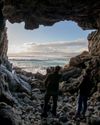
footloose IN FYNBOS
The Walker Bay Diversity Trail is a leisurely hike with a multitude of flowers, feathers and flavours along the way.
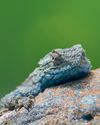
Living forwards
How photographing birds helps me face adversity
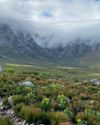
CAPE crusade
The Cape Bird Club/City of Cape Town Birding Big Year Challenge
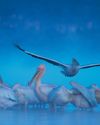
water & WINGS
WATER IS LIFE. As wildlife photographer Greg du Toit knows better than most.
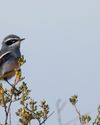
winter wanderer
as summer becomes a memory in the south, the skies are a little quieter as the migrants have returned to the warming north. But one bird endemic to the southern African region takes its own little winter journey.
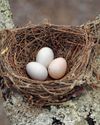
when perfect isn't enough
Egg signatures and forgeries in the cuckoo-drongo arms race

Southern SIGHTINGS
The late summer period naturally started quietening down after the midsummer excitement, but there were still some classy rarities on offer for birders all over the subregion. As always, none of the records included here have been adjudicated by any of the subregion's Rarities Committees.

flood impact on wetland birds
One of the features of a warming planet is increasingly erratic rainfall; years of drought followed by devastating floods. Fortunately, many waterbirds are pre-adapted to cope with such extremes, especially in southern Africa where they have evolved to exploit episodic rainfall events in semi-arid and arid regions. But how do waterbirds respond to floods in areas where rainfall - and access to water - is more predictable? Peter Ryan explores the consequences of recent floods on the birds of the Western Cape's Olifants River valley.
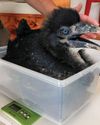
a star is born
It’s every producer’s dream to plan a wildlife television series and pick the right characters before filming.